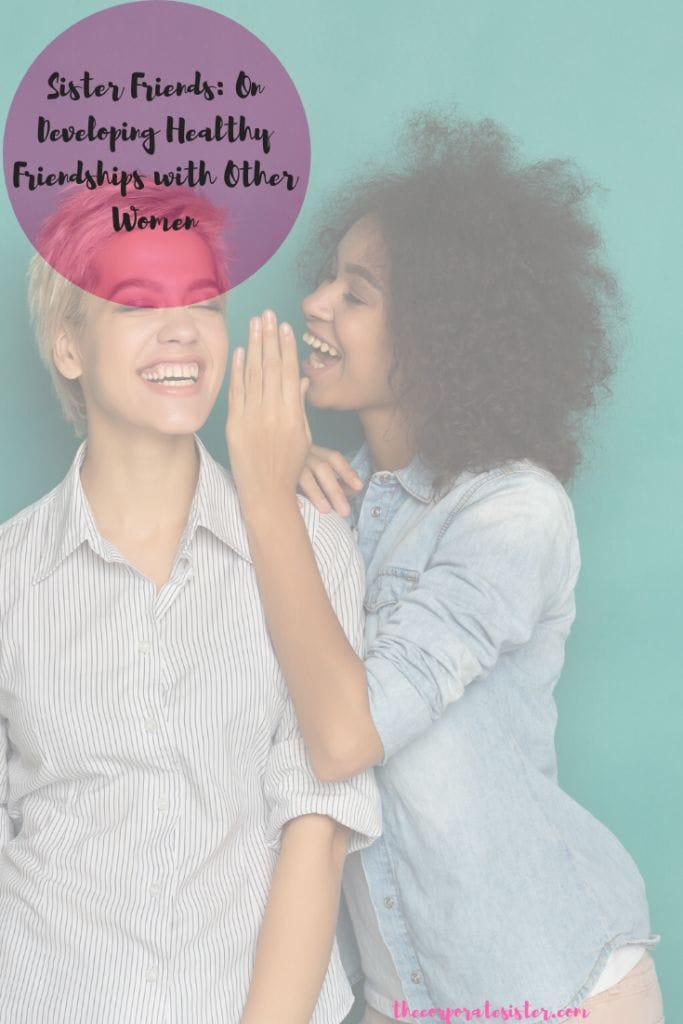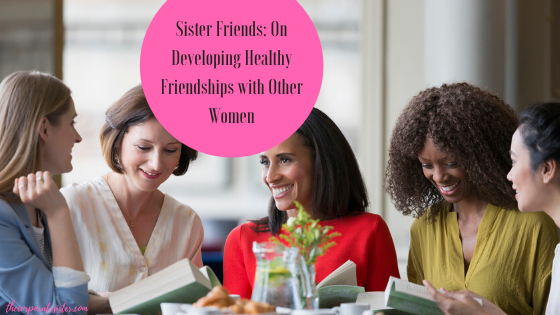“You’re my person”: When Cristina Yang (Sandra Oh) uttered the now famously coined phrase to her best friend Meredith Grey (Ellen Pompeo) as she shares her decision to put her name down as an emergency contact for her upcoming abortion, it took on a life of its own, embodying our primal human need for deep, healthy, fulfilling friendships. From Sex and the City to Issa Rae’s Awkward Black Girl, stories of female friendships and girl squads have graced our TV screens and subconscious for decades, confirming that as working women and working moms, our friendships play an important role in our lives. However successful we may be professionally, or even family-wise, friendships with other women hold a sacred place. For many, if not most of us, they are a reminder of our original relationship with our mothers, aunts, sisters and other female pillars of our lives, as well as a reflection of our own self-love. This can make the dynamics of our relationships with our sister friends beautifully complex, uniquely fulfilling, and sometimes, downright frustrating.
Research has proven that healthy female friendships have countless benefits, from providing mental and spiritual support, to improving breast cancer outcomes. Despite modern research descriving women as “mean girls” (Vaillancourt, 2013), female alliances were originally formed as a means for survival and protection for self and for family(Radtke, 2017), as well as for the transmission of parenting and reproductive knowledge. Additionally, this study by the National Academy of Sciences of the United States of America confirms women with a strong network of female friends place professionally better than women who don’t.

However, in the modern era of social media, lacking inter-personal connection, and negative media messages around female friendships, it can be challenging to reap these benefits if, and when, we do not foster and nurture healthy relationships with other women. Healthy relationships based on trust, openness, vulnerability, rather than fear, distrust, and anger. It’s the same fear, distrust and anger that end up being translated into gossip, “mean women”, Queen Bee Syndrome, and exclusion, to cite a few.
In my own relationships, I’ve had the privilege to experience the beautiful openness, trust, and vulnerability that makes female friendships a unique bond, and also the heart-wrenching fear, betrayal, and distrust that rob us of the empowering impact of these connections. I’ve learnt, and am still learning (and probably always will) from my positive and negative experiences, as well as my mistakes and mishaps, and growing into a better understanding of the sacred bond between women:
- Friendship is a process:
In the era of instant messages and micro-waved networking, we can be tempted to jump in and out of friendships, without the realization it is a marathon, not a race. It’s a process that requires this one thing we cannot microwave: time. It takes time to know someone, see them act in different contexts, build a history with them. It takes time to face and surmount obstacles, enjoy moments together, and deepen bonds. Without it being a process, a friendship can hardly survive, let alone flourish.
- A fruitful friendship is a friendship that evolves as both individuals involved evolve as well.
This is where so many friendships reach an impasse, especially among women, as we often tend to not voice our concerns in relationships. I often hear some people say: “I hope you never change” to their friends, which tends to make me shudder every single time. Not expecting those around us, especially our friends, to evolve and change for the better, is to keep them stuck in the same place for our own convenience and comfort. If you’re my friend, I wish you to evolve, to grow, to change into the best version of yourself, even if your growth requires me to grow as well and challenge myself to meet you at a place that is mutually beneficial.
A fruitful friendship is one that evolves. Developing healthy friendships requires shedding the fear of evolving, and that of our friends evolving as well. Some of my greatest relationships are friendships that grow as both individuals grow, and as we both discover new facets of ourselves and each other, and engage on a path on continuous, positive, even exhilarating evolution.
- Don’t be afraid to release what no longer serves.
Developing healthy female friendships also requires leveraging the power of releasing what no longer serves. Very often, we allow history to determine relationships that no longer have a place in our destiny. It’s these same relationships that in turn, prevent us from growing into our full potential and achieve our destiny, as we settle for the comfort of familiarity and ease.
Healthy friendships challenge you, push you to be a better version of yourself, and fulfill you to the brim. They don’t leave you drained, empty or wanting for more, but instead felling supported, valued, cherished, and challenged. If not, it may be time to release them, gently, peacefully, with the understanding that we’re creating more space for relationships that fit us better, for our mutual benefit.
All in all, developing healthy female friendships is like making an investment in our well-being, health and potential. Yet, it’s also a process of introspection, self-knowledge and character development that requires choosing who can sit at the table of your life and on what terms. In the end, it may be one of the most important processes of your personal and professional life.
How do you develop healthy female friendships?
The Corporate Sis.







